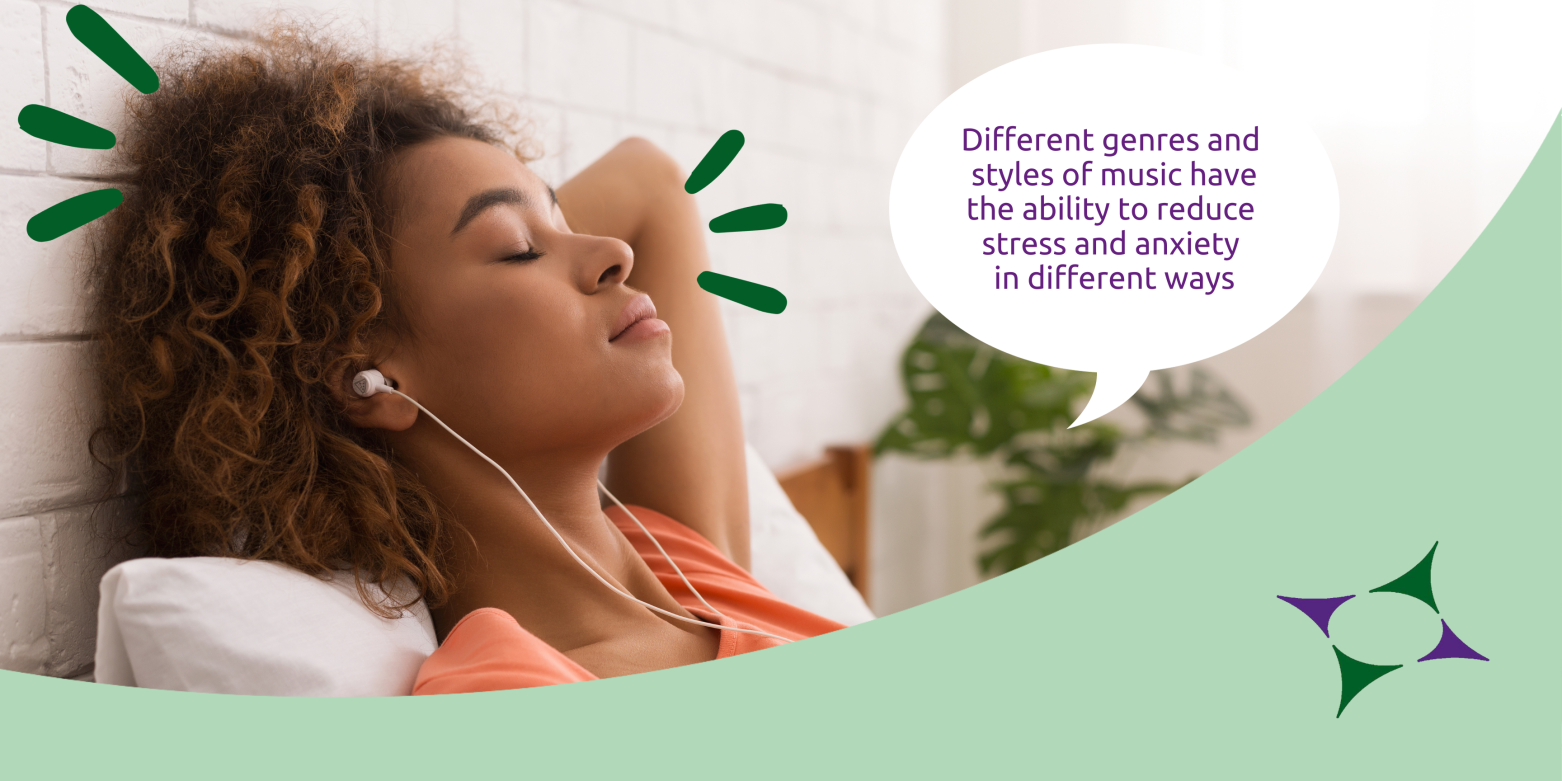The Power Of Music
Music is a powerful tool. It has the ability to transcend cultural differences and language barriers. It creates atmosphere and ambience. It gives us a feeling of nostalgia and memory. But it also has a profound impact on our minds and bodies, offering a wide range of therapeutic and physiological benefits that support our mental and physical health and wellbeing. In this blog, we will explore the transformative power of music and delve into the evidence that underscores its positive effects.

Reducing Stress and Improving Wellbeing
Many of us use music in our daily lives to convey or mirror our emotions and feelings. Perhaps we feel angst and want to release pent up frustration listening to our favourite songs in the car, maybe we’re feeling somber and listen to a playlist that reminds us of past memories or experiences. Different genres and styles of music have the ability to reduce stress and anxiety in different ways. Here are just a few examples
- Listening to soothing music has been proven to directly impact our nervous system. Slow tempo music can reduce the speed of our heart rate and lower blood pressure. This in turn stops the production of stress hormones contributing to a calmer and less anxious state.
- Music also stimulates the release of endorphins, the body’s natural feel-good chemicals. Music with an up-beat tempo can create a sense of pleasure and support well-being, which counteracts the feelings of stress and anxiety.
- Songs with a steady tempo can help to synchronise breathing and heart rate which also creates a sense of calm and relaxation. This is particularly effective for those who suffer with breathing difficulties.

Enhancing Cognitive Abilities
As well as supporting improved wellbeing, listening to music can go so much further to stimulate our brain. Research has shown that music can improve various aspects of mental processing, including; memory, attention, problem-solving and creativity. Music therapy has been particularly effective for those suffering with long-term conditions such as dementia or Alzheimer’s. It enables those suffering to connect with others and support feelings of nostalgia. Pairing this with learning to play instruments in care homes, there is evidence that it hones cognitive and fine motor skills and could have a role in prevention of the disease too. Here are a few other notable ways music can enhance cognitive ability for different people.
- Songs with lyrics can help improve verbal memory by providing a mnemonic structure. This is the process of linking beats or rhythms with letters and words. In short, the rhythm and melody of a song can make it easier to remember lyrics or spoken information.
- Music is as much a visual tool as it is audio. It can be used to create mental maps or cues, helping individuals remember locations, sequences of events, a period of time or what someone looks like or is wearing. Think about your favourite song, you’ll almost always remember the music video, or location you saw it too!
- Some people find that listening to instrumental music or ambient sounds can help them concentrate and block out distractions. This can be particularly useful for tasks that require sustained attention.

Pain and Rehabilitation
In the same way music has the ability to benefit our mental state of mind, listening to it can also alleviate physical pain and discomfort too. Music therapy is sometimes prescribed to people suffering physical pain as it can improve pain management by directing attention away from the source of discomfort, whilst supporting breathing and relaxation as we mentioned above. Here are other ways music can be used to benefit pain and support rehabilitation.
- Music is able to trigger the release of endorphins which are natural painkillers produced by the body. Upbeat and enjoyable music can promote the release of these ‘feel-good’ hormones and therefore could make feelings of pain less intense.
- Studies have shown that engaging with music can increase pain tolerance, allowing you to withstand the discomfort for longer periods before seeking relief. Some studies suggest this is because we are more distracted, whilst in a state of relaxation too.

Better Sleep Quality
For those who struggle with sleep, be that getting to sleep or staying asleep, incorporating music into a routine before bed can improve the quality of sleep had. Studies believe this is because it creates a relaxed state of mind which is conducive to sleeping better. Here are some of the other ways music can improve better sleep quality.
- Soft, ambient music can mask or drown out disruptive background noises, such as traffic or household sounds. This can make it easier to ‘switch-off’ and relax, ready to fall asleep more soundly. Some people will use white noise to distract other sounds and create a calming environment.
- Slow-tempo music can help slow down heart rate, which prepares your body for a restful state. This is especially helpful for people who struggle with insomnia or racing thoughts at night.
- Establishing a consistent routine at bedtime that includes listening to calming music can signal your body that it’s time to sleep, which helps transition you into a more relaxed state of mind, and a better quality of sleep.

The benefits of music for mental and physical health and wellbeing truly cannot be understated. Music’s ability to sooth, invigorate and transport us to different emotional landscapes has a profound impact on our state of mind. Whether it’s the release of endorphins that alleviate pain, the relaxation that reduces stress, or the stimulation of cognitive function, music is a therapeutic force with the potential to enhance our lives in many different ways.
